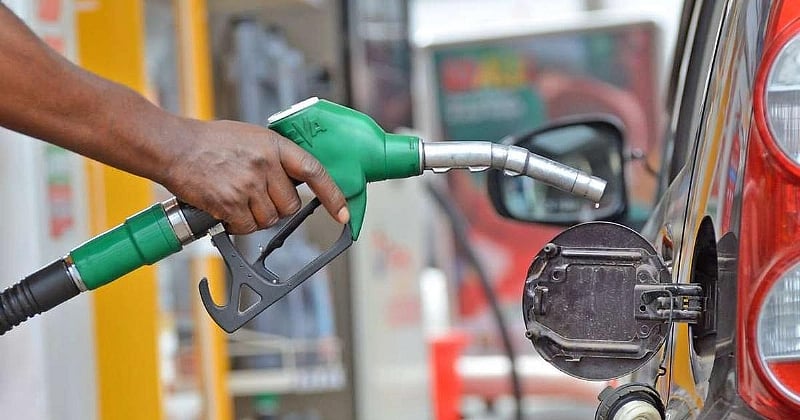The Ghana Chamber of Bulk Oil Distributors (CBOD) has released a report detailing a dramatic surge in fuel prices between 2020 and 2024, painting a stark picture of the economic strain faced by businesses and households. The report reveals an astronomical 150% increase in the price of petrol, rising from GH¢5 per litre in 2020 to GH¢13 per litre in 2024. Similarly, diesel prices experienced a staggering 200% increase, climbing from GH¢5 to GH¢15 per litre over the same period. These escalating fuel costs have had a cascading effect on various sectors of the Ghanaian economy, impacting transportation, the cost of goods and services, and even the country’s energy transition agenda. The CBOD report serves as a critical analysis of the factors driving these price hikes and offers recommendations for the incoming government to address the challenges and build a more resilient energy future.
The primary driver of this fuel price surge, according to the CBOD, is the volatile exchange rate of the Ghanaian cedi against the US dollar. The report highlights a drastic 40.88% depreciation of the cedi in 2024 alone. This depreciation significantly increased the cost of petroleum products, which are primarily imported using US dollars. While the Bank of Ghana (BoG) implemented a special foreign exchange auction in 2022 to provide Bulk Import, Distribution, and Export Companies (BIDECs) with forex at lower rates, the allocated $40 million per month fell far short of the estimated $400 million required for monthly petroleum imports. This persistent gap between forex supply and demand continued to exert upward pressure on fuel prices.
Beyond the domestic currency challenges, the CBOD acknowledges the influence of global events on Ghana’s fuel market. The report cites the Russia-Ukraine war, the COVID-19 pandemic, and the Israel-Iran war as major contributing factors to the global supply chain disruptions and subsequent price increases. Sanctions imposed on Russia, a major global fuel producer, further exacerbated supply shortages and fueled price hikes in the international market. The pandemic also played a significant role by disrupting global supply chains, increasing transportation and production costs, and ultimately contributing to the upward trajectory of fuel prices.
The implications of these soaring fuel prices have been far-reaching, impacting individuals, businesses, and the overall Ghanaian economy. The transport sector has been particularly hard hit, with commercial operators forced to repeatedly increase fares, ranging from 15% to 30%, to offset the rising cost of fuel. These increased transportation costs have, in turn, fueled inflation, pushing up the prices of goods and services across the board. The report also reveals a detrimental impact on the country’s energy transition goals, as higher prices for Liquefied Petroleum Gas (LPG) led to decreased consumption by households, dropping from 345,478 metric tons in 2021 to 305,076 metric tons in 2022.
The CBOD report underscores the significant economic challenges posed by the escalating fuel prices and presents an opportunity for the incoming government to address these issues strategically. The four-year period of escalating fuel costs has placed a heavy burden on individuals, businesses, and the transport sector, highlighting the urgent need for effective policy interventions. The report emphasizes the importance of stabilizing the exchange rate and building a more resilient economy capable of withstanding global shocks. Diversifying the country’s energy mix is also crucial to reduce reliance on petroleum products and mitigate the impact of future price fluctuations.
The report offers key recommendations for the new government and stakeholders, stressing the need to prioritize exchange rate stability as a critical step towards mitigating fuel price increases. Long-term strategies, such as diversifying energy sources and enhancing local refining capacity, are also crucial for reducing dependence on imported petroleum products. These strategies, combined with a focus on improving local fuel production capabilities, can shield Ghana from the volatility of the global fuel market. The CBOD argues that addressing these challenges with a proactive and long-term vision will not only alleviate the burden on consumers and businesses but also pave the way for greater energy security and economic resilience in the face of global uncertainties.
The CBOD report serves as a call to action, urging the government to implement comprehensive strategies to address the root causes of fuel price volatility. By focusing on exchange rate stability, investing in local refining capacity, and diversifying the energy mix, Ghana can mitigate the impact of global market fluctuations and create a more sustainable energy future. These measures are essential not only for alleviating the immediate economic pressures but also for building a more resilient and secure energy landscape in the long term. The report’s findings and recommendations offer a valuable roadmap for the incoming government to navigate the complex challenges of fuel price volatility and lay the foundation for a more stable and prosperous economic future.


